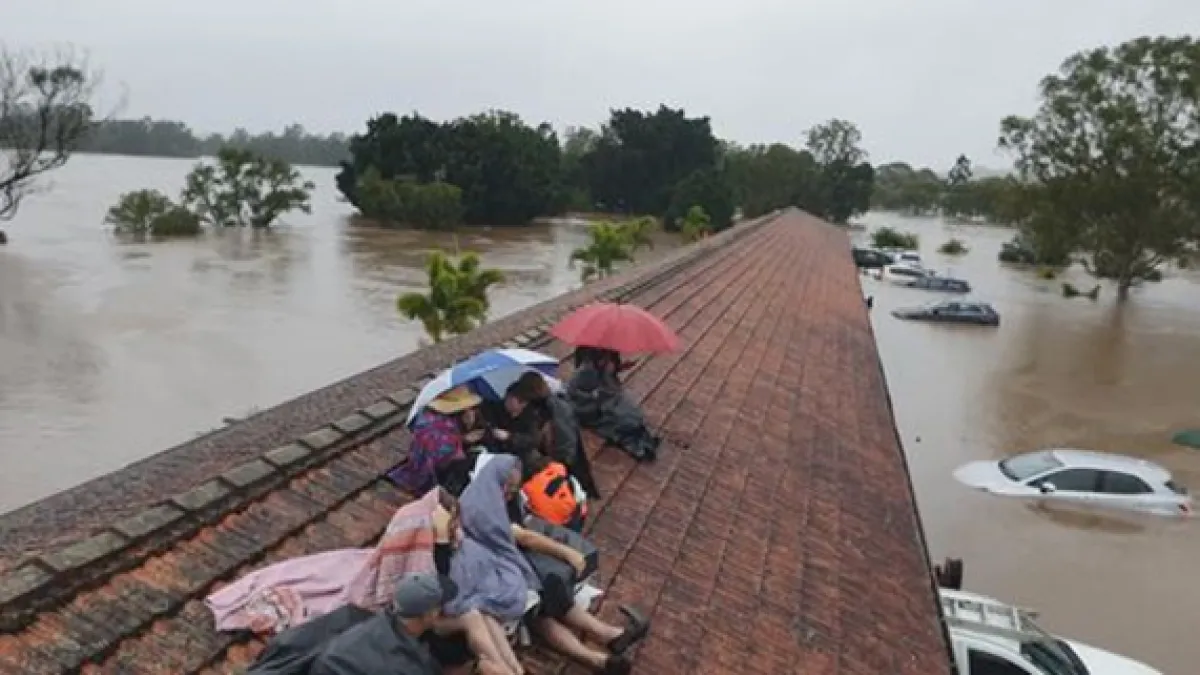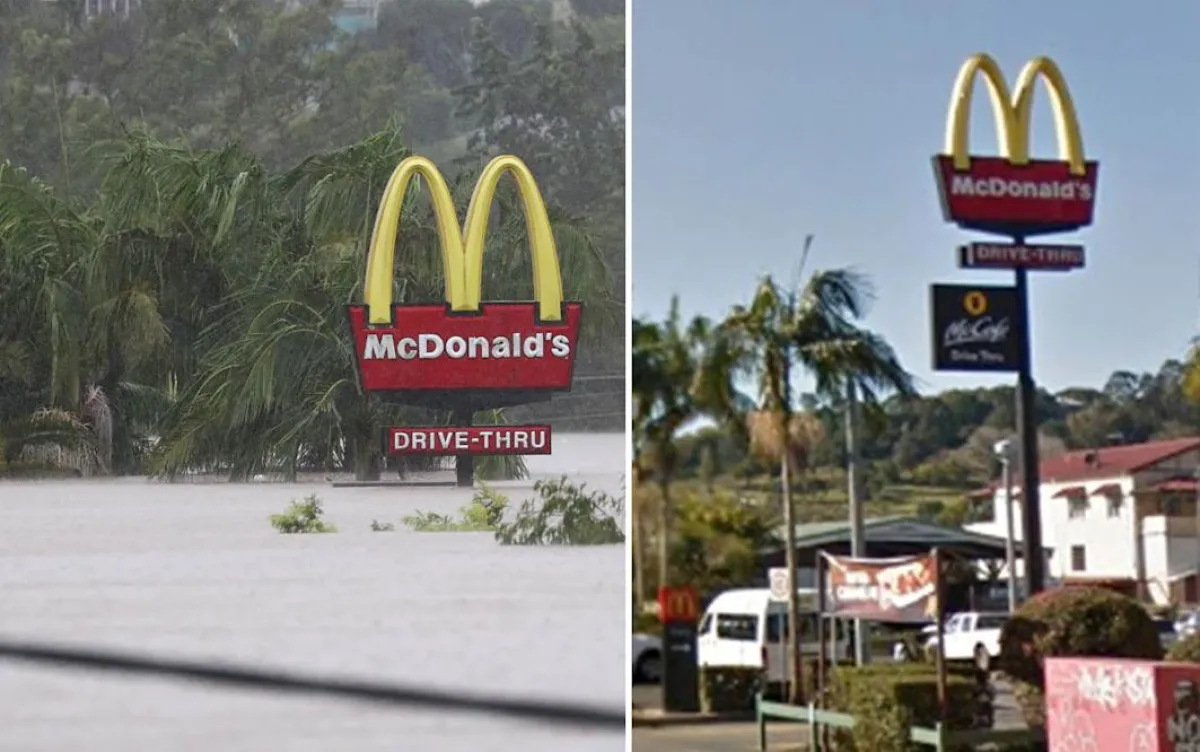Institute for Climate, Energy and Disaster Solutions (ICEDS) - Working with ANU Scientists to Find New Solutions to Preventing Flood Damage
Work with ANU scientists to partner with regional communities to minimise the impacts of floods on communities.
Student opportunity type
Degree level
About
Working with ANU Scientists to Find New Solutions to Preventing Flood Damage
Climate, energy and disasters are crucial and growing issues for Australia. The Institute for Climate, Energy and Disaster Solutions (ICEDS) initiates and supports the innovative cross-disciplinary research across ANU with the aim of ensuring broad societal impact as well as leading outreach, policy engagement, facilitation and coordination roles.

A helicopter came to rescue the residents atop the hotel in Lismore. (Nine)
Current approaches to flood resilience are not keeping up with climate change. They cannot be relied upon. We need to think and act differently from in the past. We must find new solutions.
Australian floods of biblical proportions as we are seeing in NSW and QLD are not just 1 in 100 or 1 in 1000 year events. We can expect them much more often.
Australia is suffering greater impacts of climate change than any other advanced economy, and will face cascading, compounding and aggregate impacts on cities, settlements, infrastructure, supply-chains and services from floods (https://bit.ly/3pq0iTx IPPC Report).
Traditional solutions for flood prevention will not work on their own.
This is why the ANU Institute for Climate, Energy and Disaster Solutions (ICEDS) is embarking upon a new initiative to partner with regional communities to develop a framework and process to evaluate options for minimising the impacts of floods on communities.
Nature based solutions (NBS) and their ability to address flood risk is a solution that is receiving increasing attention globally. The project also includes a review of these global developments, and assessment of they can be applied in Australian conditions.
We invite interns to join our team in our quest for finding new solutions to prevent flood damage.
|
Internship details |
|
|
Internship Availability |
Summer or Semester 1, 2023 |
|
Internship Discipline/s |
Environmental Science/Mathematical Modelling/Hydrology/Environmental Economics |
|
Internship Level |
2nd or 3rd year Undergraduate; Postgraduate Coursework |
|
Available to International Students |
Yes |
|
Preferred Project Skills: |
There are a number of projects. Each requires different skills, including
|
|
Clearances Required |
No |
|
Host Supervisor |
Dr Roslyn Prinsley, Head of Disaster Solutions, ICEDS; Roslyn.Prinsley@anu.edu.au |
|
Location |
Coombs Building, ANU |
|
Project Opportunities/Benefits for the Intern |
There are a number of projects. Each requires different skills, including
|

Lismore McDonald's before and during the floods. Composite: Jason O'Brien/Google Maps/AAP (https://www.theguardian.com/australia-news/2022/feb/28/lismore-flooding-before-and-after-pictures-show-the-full-scale-of-disaster).
An opportunity exists for high-achieving undergraduates or master’s students from ANU to undertake an internship at the Institute for Climate, Energy and Disaster Solutions under the guidance of the ANU National Floods Initiative Team.
Projects
Background:
The Institute for Climate, Energy and Disaster Solutions (ICEDS) has assembled an experienced team of researchers across water science, ecology, economics, social science, engineering, policy and modelling. We are partnering with rural, regional and peri-urban communities in a range of locations across New South Wales, Queensland and Victoria to assess and quantify options for increasing community resilience to coastal and inland river flooding.
Projects:
We are seeking an intern for each of the following projects:
Are you interested in exploring nature-based solutions to flood management, which can simultaneously provide benefits for climate, biodiversity and people?
1. Synthesise quantitative information relating to the impact of nature-based solutions on flooding. Literature review, data collation and analysis
2. Quantify the co-benefits of nature-based solutions for flood management (rivers) and how this might be relevant for specified areas in Australia. Literature review, data collation and analysis
3. Review of available rapid appraisal methods and their suitability for assessment of nature-based solutions in specified areas within Australia. Literature review
4. Document and quantify the co-benefits of flood risk management interventions and investigate potential alternative financing arrangements. Literature review, data collation and analysis
Can you apply your mathematical, modelling or mapping skills to help address contemporary flood risk management issues?
5. Identify and describe modelling approaches that have been used in Australia for predicting the extent of floods and the advantages and disadvantages of each approach. Literature review
6. Hydrodynamic modelling floods in flat terrain with meandering streams - modelling flows under these conditions, and solutions that have been tried (and proven?). Literature review and analysis
7. What is the potential for diverting water into paleochannels to reduce flood risk? Topographical study and/or literature review and analysis
8. Compare models which simulate river flows during floods – Hydrological / mathematical modelling
Are you interested in exploring local knowledge of flood risk and mitigation measures within specific river catchments in Australia?
9. Engage with specified Councils to source flood risk maps and hydrological studies, community consultations and local reports to explore:
- the risks and needs identified in each location
- mitigation methods that have been explored
- an evaluation of how effective these might be
Are you keen to put your literature review and problem-solving skills into practice to help identify policy and societal challenges around flood risk management?
10. Identify possible challenges and barriers to implementation of nature-based solutions for flood risk management, at state level and within specified local areas. Literature review
11. Analyse state framework and processes relating to flood risk management within Queensland, NSW and Victoria and the extent to which these integrate nature-based solutions. Literature review
Download
